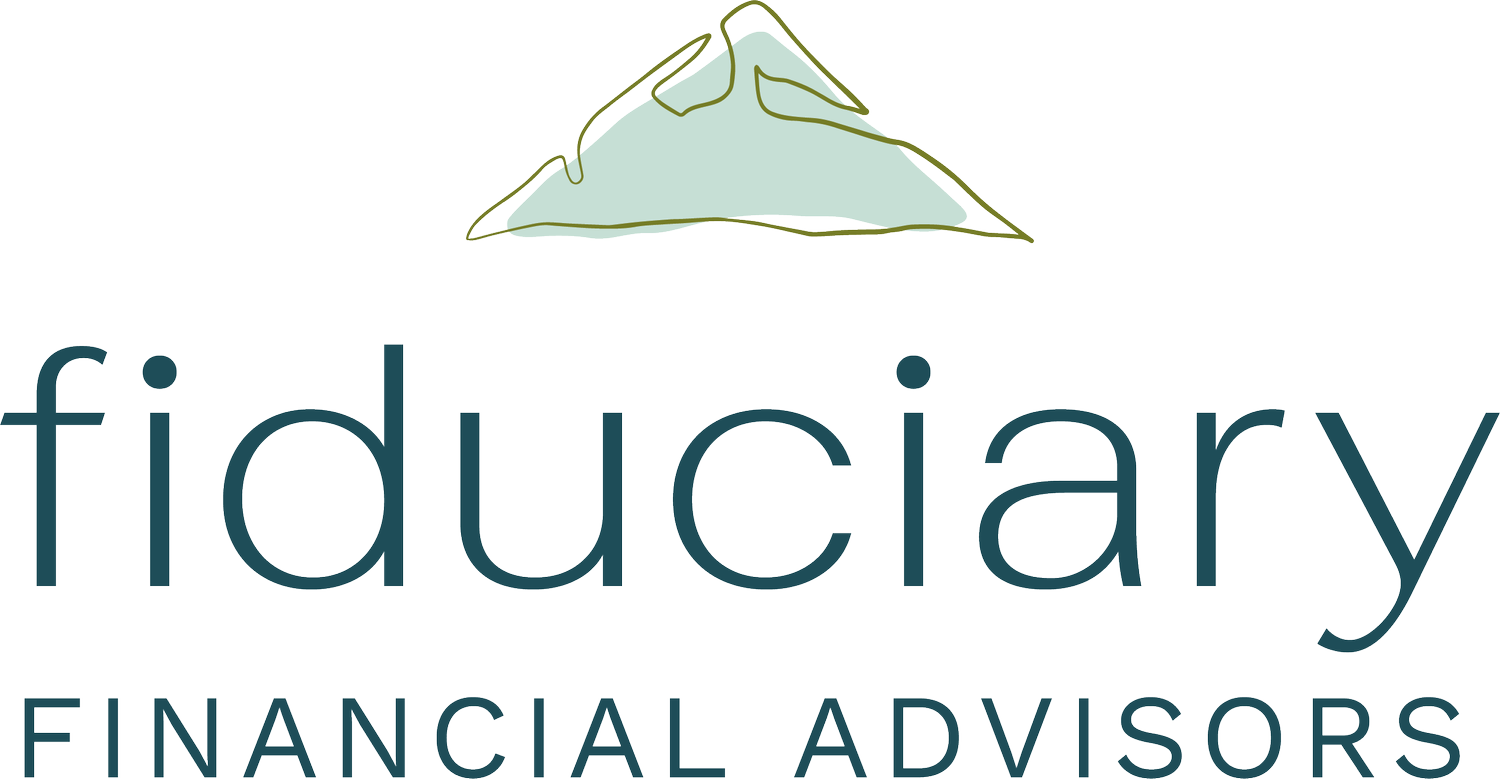Your Business May be Your Rocket Ship. But Where is Your Mission Command?
Why the smartest thing a successful business owner may do is systematically build wealth outside their company.
Key Takeaways
Diversify Your Wealth: Relying solely on your business for wealth creates dangerous concentration risk. Building outside assets provides critical diversification.
Fund Your Life Separately: Use outside wealth to fund personal milestones like retirement and education, decoupling them from your business's performance.
Embrace Tax Diversification: Complement your business's pre-tax retirement plans with post-tax Roth accounts and taxable brokerage accounts to hedge against future tax changes.
Build a Complete Estate Plan: A true legacy plan goes beyond a will and includes trusts, powers of attorney, and strategies for liquidity and gifting to protect your family and assets.
In our last discussion, we broke down why comparing a dynamic business like the Lakers to a passive S&P 500 fund was like comparing a rocket ship to a passenger train. The business, with its leverage, cash flow, and tax advantages, is an unparalleled engine for wealth creation.
And I stand by that. Your business is likely the cornerstone upon which your family's greatest financial assets will be built.
So, what I'm about to say might feel a little hypocritical: The single most important financial move a successful business owner may make in their career is to consistently and strategically move money out of their business.
This isn't about being less committed to your company. It’s about being more committed to your family's long-term security. You’ve already built the empire; now it's time to build the fortress around it.
What is Concentration Risk for a Business Owner?
Being the owner is exhilarating. You control your destiny. The flip side? All of your financial destiny is tied to a single asset. We love to talk about diversification when it comes to a stock portfolio, but we often ignore the fact that for most owners, their business represents the least diversified portfolio imaginable.
It’s like being a Michelin-star chef who only eats his own cooking. The food is brilliant, but you’re crippling future growth by not expanding your, or your family’s, horizons.
Market shifts, industry disruption, a key employee leaving, or your own health can put the entire enterprise at risk. This is concentration risk. You've spent years building your golden goose; a savvy financial plan ensures you have a stockpile of golden eggs held safely in a completely different basket.
Why Fund Your Personal Goals Outside the Business?
Your company's balance sheet is not your personal balance sheet. The business needs to retain capital for growth, but your life has its own capital requirements. Systematically building wealth outside the business allows you to firewall your personal goals from your business's performance.
Retirement on Your Terms:
You may plan to sell the business for your retirement, but what if the perfect buyer doesn't show up the month you want to hit the golf course? What if the market is in a downturn and valuations are compressed? A separate, liquid nest egg gives you the power of choice. It means you can retire when you want to, not when you have to.
Funding Life’s Big Moments:
Your daughter's wedding, your son's college tuition, that vacation home you've been dreaming of; these things shouldn't be dependent on your company's Q3 revenue. Funding these goals with assets completely decoupled from your business removes immense pressure from both you and the company.
What is Tax Diversification and Why Does It Matter?
In the last article, we’ve established the incredible tax advantages of running a business; from deducting vehicles to super-charging retirement accounts. Plans like a 401(k) or a Cash Balance Plan allow for massive pre-tax contributions that lower your income today. But true tax strategy, like investment strategy, benefits from tax diversification.
Building wealth outside the business opens up a new set of tools:
The Roth Bucket:
Business retirement plans are fantastic for those massive pre-tax contributions, but you're creating a future tax liability. By funding Roth IRAs (or executing Roth conversions), you use post-tax dollars to build a bucket of money that is 100% tax-free in retirement. This is a critical hedge against the uncertainty of the future tax landscape
The Taxable Brokerage Account:
It sounds simple, but having a standard brokerage account, funded with after-tax money, is a cornerstone of liquid wealth. It's not locked up in a retirement plan, and when you sell assets held for more than a year, you benefit from lower long-term capital gains tax rates. It’s your financial multi-tool: liquid, flexible, and tax-efficient.
What Does a Complete Estate Plan Look Like?
For many business owners, an "estate plan" often means having a will and a buy-sell agreement. While essential, that’s like a master builder commissioning the quarrying of a mountain of exquisite marble but only drafting a blueprint for the front steps of the actual building he’s constructing. A true estate plan is the full architectural design for the entire multi-generational estate your business has given you the power to build.
The goal is to construct a legacy that protects your family from taxes, probate, and internal conflict. This requires several key structural elements:
Powers of Attorney and Medical Directives:
These are the most crucial, yet often overlooked, documents. Who makes financial decisions for your business and personal life if you're incapacitated? Who makes healthcare decisions on your behalf? Without these directives, your family could face a costly and agonizing court process to gain control, leaving your business and assets in limbo when they need stability most.
Trusts:
A Revocable Living Trust is the foundational drawing for your entire estate. It dictates how your non-business assets are structured and distributed, ensuring they pass to your heirs without the costly, time-consuming, and public process of probate. It provides the framework for the entire structure, giving you control over the final design
Strategic Liquidity:
This is where the challenge of fairness comes in, especially when some children are in the business and others aren't. How do you ensure equity without having to dismantle the main structure? This is where life insurance can become a critical utility. Often held within a specialized trust (like an ILIT), a policy can provide a tax-free, liquid infusion of capital to provide a cash inheritance to non-participating children or give the estate the cash needed to pay hefty estate taxes.
Strategic Gifting:
The tax code allows you to give to your heirs' by gifting significant amounts to them each year (as well as over your lifetime) tax-free. A strategic gifting program, specifically one where the gifts are given with a specific intended goal, methodically reduces the future size of your taxable estate while allowing you to see your family enjoy the security and comfort you’ve worked so hard to create.
Are You a Business Owner or a CEO of Your Family's Future?
Loving your business and protecting your family's future are not mutually exclusive goals. In fact, the latter requires you to look beyond the former.
Building a fortress of outside assets; liquid investments, tax-diversified accounts, and legacy-protecting trusts: is what separates a successful business owner from the founder of a financial dynasty. It’s the difference between merely launching a rocket and establishing a Mission Command that directs the entire operation.
Your business may be your powerhouse for creating wealth. A plan that strategically moves that wealth into your family's Mission Command is the blueprint for ensuring your mission succeeds for generations to come.
Recent Articles Written By Andrew:
Frequently Asked Questions (FAQ)
Q: Why should a business owner build wealth outside of their company?
A: Business owners should build wealth outside their company to diversify away from the concentration risk of having all their assets tied to one entity. This strategy provides liquidity for personal goals, creates retirement options not dependent on a business sale, and enhances family legacy planning.
Q: What is tax diversification for an entrepreneur?
A: Tax diversification is the strategy of holding wealth in different types of accounts to minimize future tax burdens. It involves balancing pre-tax retirement accounts (like a 401(k)) with post-tax accounts (like a Roth IRA) and taxable brokerage accounts, providing flexibility against a changing tax landscape.
Q: What are the most important parts of an estate plan besides a will?
A: For a business owner, a complete estate plan should also include: 1) Powers of Attorney and Medical Directives for incapacitation, 2) a Revocable Living Trust to avoid probate, and 3) strategies for liquidity (often using life insurance) and gifting to manage estate taxes and ensure fairness among heirs.
Q: How can a business owner ensure fairness when leaving the business to only some of their children?
A: A common strategy is to use life insurance, often held in a trust, to provide a tax-free cash payout equal to the business's value to the
Recent Publications Featuring Andrew:
Podcasts Featuring Andrew:
Fiduciary Financial Advisors, LLC is a registered investment adviser and does not give legal or tax advice. Information presented is for educational purposes only and does not intend to make an offer or solicitation for the sale or purchase of any securities. The information contained herein has been obtained from a third-party source which is believed to be reliable but is subject to correction for error. Investments involve risk and are not guaranteed. Past performance is not a guarantee or representation of future results.
Fiduciary Financial Advisors does not give legal or tax advice. The information contained does not constitute a solicitation or offer to buy or sell any security and does not purport to be a complete statement of all material facts relating to the strategies and services mentioned.















It’s not about a magic net worth number; it’s about the complexity of your life. Discover why high-earning professionals and business owners are moving away from DIY management and how to distinguish between a salesperson and a true fiduciary partner who is legally bound to put your interests first.